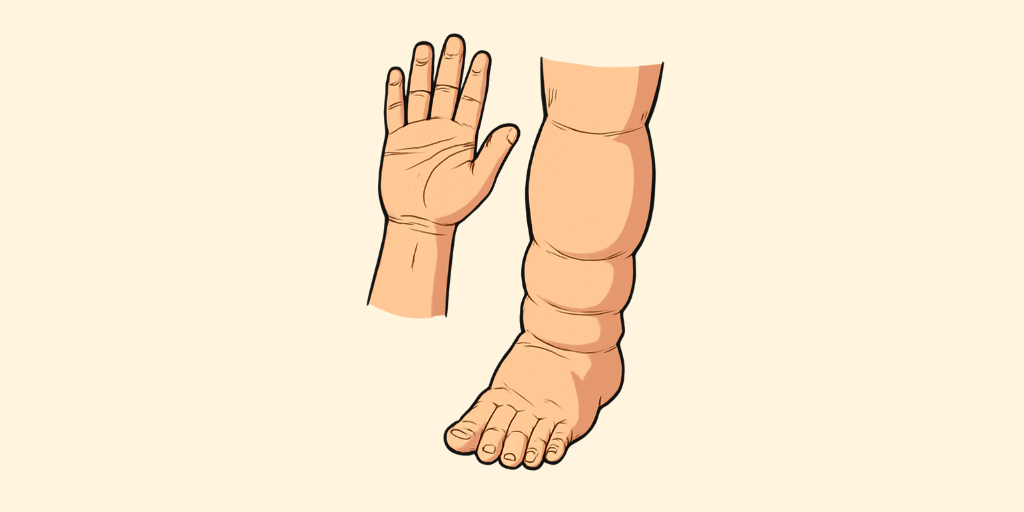Ayurvedic Name: Alsak
Description:
Alsaka is a condition where the skin becomes sluggish, swollen, and dull-colored, resembling a Kapha-Pitta imbalance disorder. The affected area appears pale, moist, and sometimes oozing, with a loss of sensation. It is correlated with Elephantiasis or Lymphedema in modern medicine. Ayurveda advocates Raktamokshana (Bloodletting), Triphala, and Manjishtha, along with external lepa (pastes) made from Neem, Haridra, and Sariva.
Signs & Symptoms:
Alsak manifests as Kushta (Skin Lesions) with Rukshata (Dryness), Kandu (Itching), Shotha (Swelling), and Agnimandya (Poor Digestion).
Diagnosis:
KOH (Potassium Hydroxide) Test
Risk Factors:
- Dietary Factors: Poor nutrition, particularly a lack of vitamins, minerals, and antioxidants, can lead to Alsak (fatigue and weakness). A diet high in sugar, caffeine, and processed foods can deplete energy levels and increase inflammation.
- Lifestyle Factors: Stress, lack of exercise, and poor sleep hygiene can contribute to Alsak. A sedentary lifestyle or mental exhaustion can lead to feelings of tiredness and weakness.
Complications:
- Fatigue (Alsak): Persistent tiredness and lack of energy due to skin infections or inflammation.
- Weakness (Durbalata): Decreased physical strength due to ongoing illness.
- Skin Sensitivity (Twak Vikara): Increased sensitivity of the skin due to irritation or infection.
Epidemeology:
Alsak (Fatigue) is commonly observed in individuals suffering from chronic illnesses, poor diet, or those under prolonged stress. It is more prevalent in those with sedentary lifestyles or those who suffer from sleep disorders.

